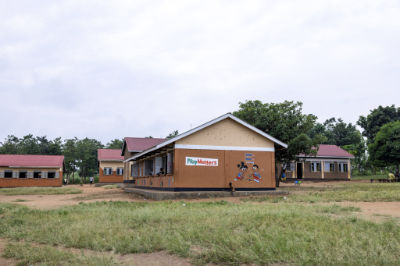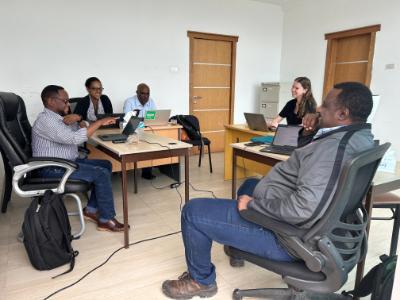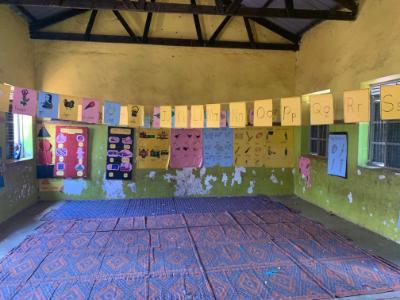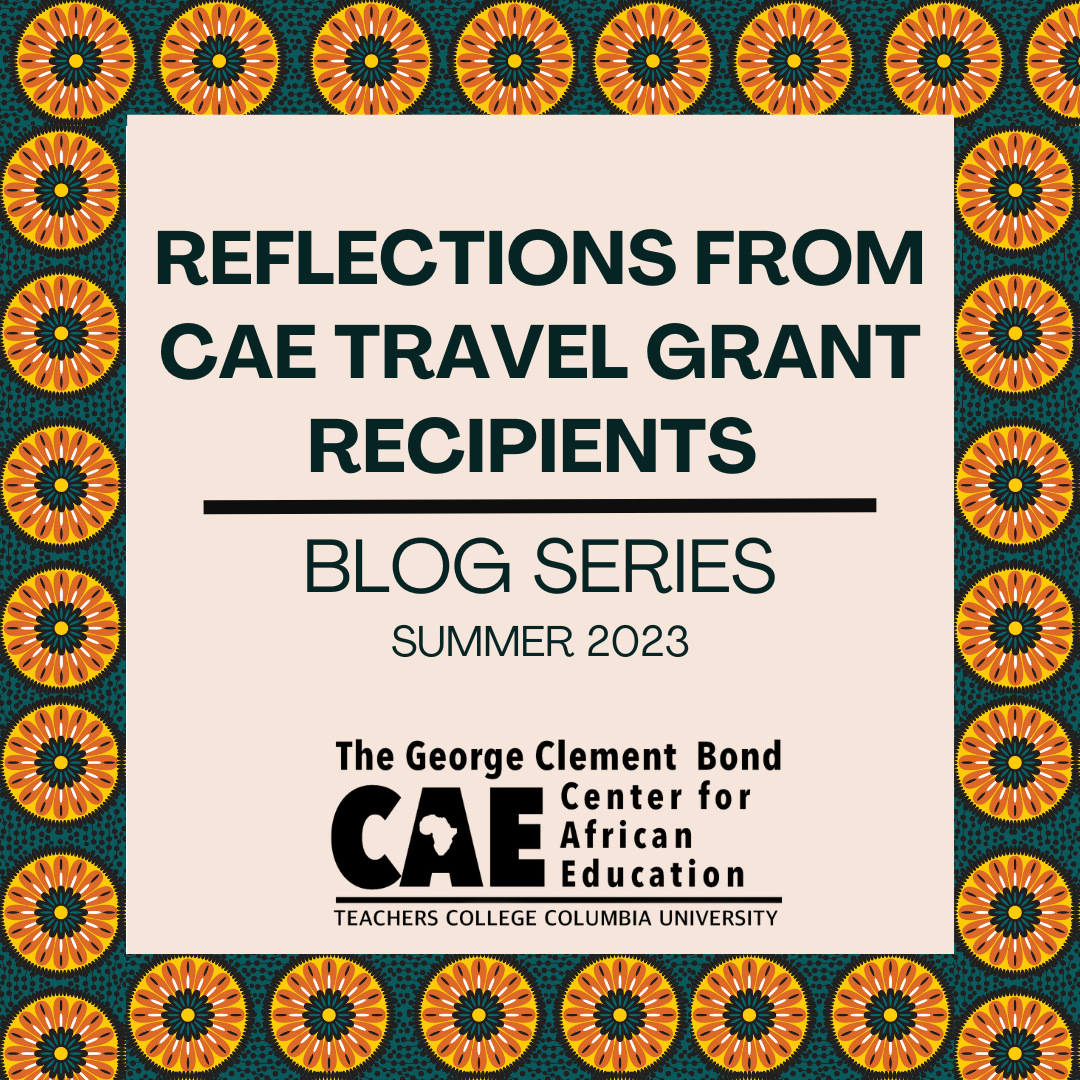This summer I traveled to Kampala, Uganda, to intern for the International Rescue Committee (IRC) as the Teaching and Learning Evidence intern on the PlayMatters project. PlayMatters (2020-2026) is an educational initiative that aims to improve the holistic learning outcomes of refugee and host community students in Uganda, Tanzania, and Ethiopia by working with existing education systems to support teachers to use “Learning through Play” (LtP) as an active teaching and learning method. The LEGO Foundation-funded project is led by the IRC and implemented in partnership with Plan International, War Child Holland, The Behavioural Insights Team, and Innovations for Poverty Action. Supported by the CAE travel grant and the Carmela and Marie F. Volpe Fellowship, my internship was an invaluable opportunity to gain insights into a large-scale refugee education project across the humanitarian development nexus.
PlayMatters spans three country contexts with unique educational, institutional, and political landscapes, as well as distinct refugee policies and national inclusion frameworks. As a systems strengthening project, the PlayMatters team collaborates with the Ministries of Education in Uganda, Ethiopia, and Tanzania to contextualize the project intervention to meet the varying circumstances in each country. While I had prepared for my internship through the course, Applied Peacebuilding: Fieldwork Competencies at Columbia’s School of International and Public Affairs (SIPA), I found myself expanding on most of the information I had studied prior to my arrival in Kampala. This was because the nature of working with PlayMatters is incredibly adaptive, shifting to reflect the contextual realities in the three country contexts and the priorities of the country teams, systems actors, and organizational partners. Therefore, I learned far more about the project from witnessing the constructive collaboration that my colleagues engaged in than from reading reports and strategy documents alone.
A few weeks before my internship began, the country teams from Ethiopia and Tanzania gathered with the regional team in Kampala, Uganda for a co-creation workshop to redefine their strategy around integrating LtP into teaching and learning. This workshop put in motion an iterative process of creating, refining and contextualizing training content that would support teachers in the respective countries to implement LtP in their classrooms. I arrived at the perfect time to hit the ground running and engage with my colleagues on these processes.
The majority of my time over the summer was spent working on content development for the rollout of PlayMatters 2.0 teacher trainings in Ethiopia. After engaging in virtual working sessions with the Ethiopia technical team for weeks, I traveled to Addis Ababa to participate in a content development workshop with my regional supervisor and the Ethiopia technical team. There, we finalized initial drafts of the teacher and school leadership training materials, and worked to refine them over the following months. The content went through several rounds of validations with actors at different levels within the education system in Ethiopia, and the finalized materials were successfully validated by the Ministry of Education in October.
At each stage of this process, I gained insights into the level of collaboration required to ensure that the training content truly accounted for the different viewpoints and priorities within the project. Moreover, I witnessed how written outputs reflected a small fraction of the co-creation process; in reality, the majority of the work took place through discussions, team brainstorms, validation workshops, and working sessions to make decisions and collectively agree on the way forward. Aside from the content development work I engaged in, I was able to take part in regional level conversations to learn more about overall project strategies and processes for engaging with existing in-service teacher professional development systems. This was an invaluable opportunity to learn more about systems strengthening approaches and gain insights into the partnership between humanitarian and development organizations and systems actors.
One of the highlights of my summer was traveling to the field site in Lamwo, Uganda, to conduct research on school-based continuous professional development within refugee and host community schools. There I spoke with teachers and school leaders and saw how LtP was being implemented in classes. This allowed me to explore how research could be leveraged to support project implementation, strengthening my knowledge on the linkages between academic research and applied practice more broadly.
Overall, the most impactful part of my summer was the ability to learn from my colleagues across all levels of the project, as well as teachers and school leaders participating in PlayMatters. My internship was a unique opportunity to engage with people who had decades of experiences in vastly different roles within the field of educational development and learn from their collective expertise. Overall, my colleagues reiterated the importance of relationship building, listening, and working in partnership to find positive ways forward through complex and ever-shifting situations. Moving forward, I continue to apply the lessons I have learned over the summer in my final year at Teachers College and feel more confident in my abilities to engage in the field of Education in Emergencies post-graduation.

About this Photo: A school in the Palabek Refugee Settlement in Lamwo, Uganda that is supported by PlayMatters.

About this Photo: My colleagues and I engaged in a working session to develop teacher training content at the IRC Office in Addis Ababa, Ethiopia.

About this Photo: Examples of teacher made learning materials from a Ugandan pre-primary classroom in a school supported by PlayMatters.
Contact Details
If you would like to learn more about this grant opportunity, please contact the George Clement Bond Center for African Education (cae@tc.columbia.edu). To stay updated on CAE events and grant opportunities, please follow us on social media:
- Twitter: CAE_TC
- Facebook: Center for African Education
- Instagram: @cae_tc
